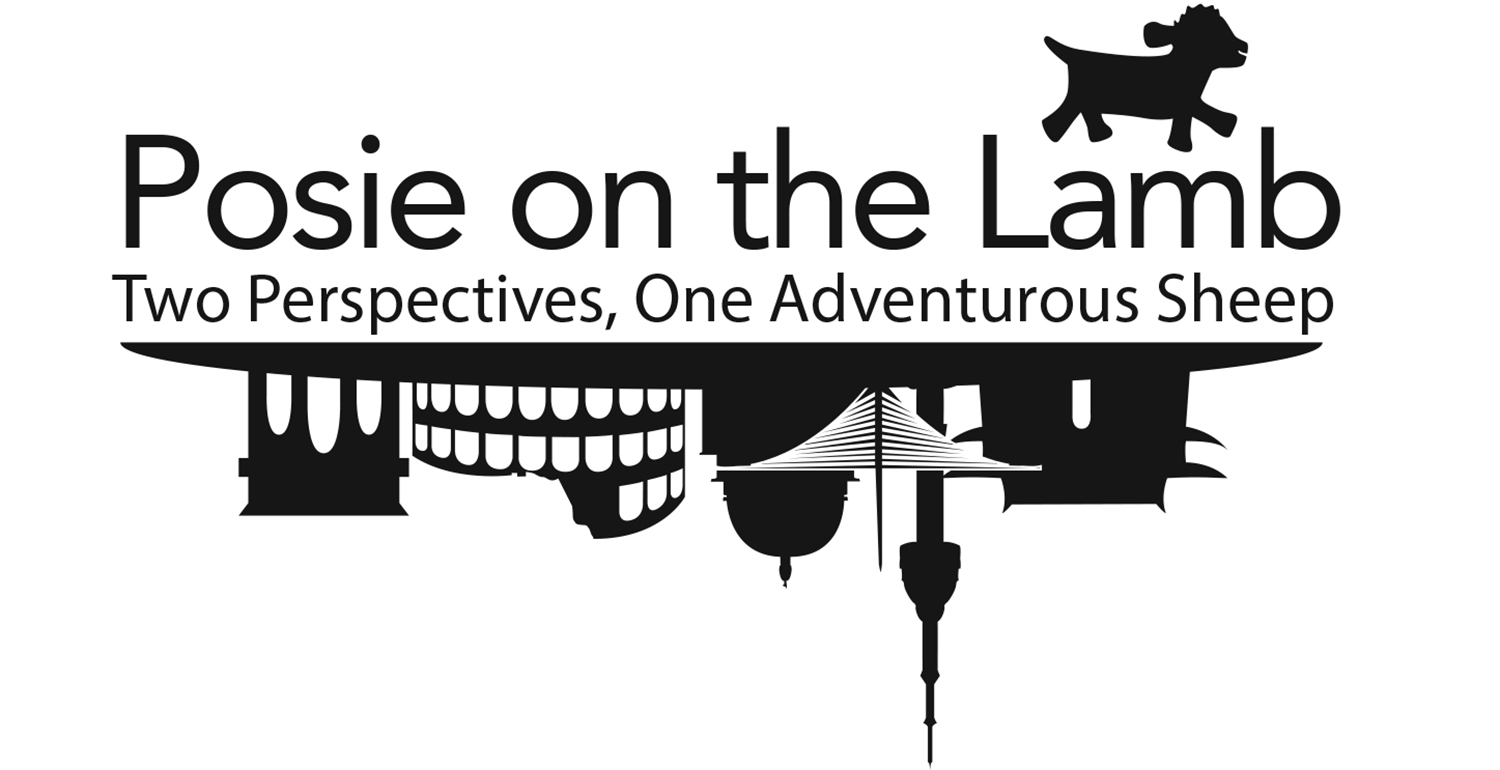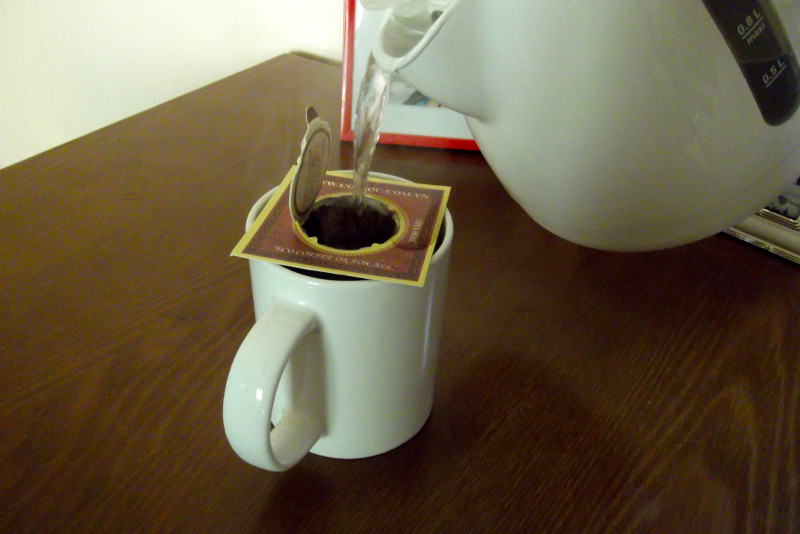Coffee Break

Koreans generally prefer their coffee in small, heavily sugared doses, made from premixed tubes. It's less coffee than liquid dessert. So recently, while on break with one of my coworkers, I was surprised when she poured out something that looked an awful lot like the real thing. "I brought it from Vietnam," she told me. She was just back from vacation. "It is very expensive. Do you like it?"
I took a sip. "It's great!"
Well, compared to the mix tubes, anyway. I supposed to a Korean palette it was strikingly dark. To me it tasted watery and slightly floral.
"Here, I will give you one to take home! And for your husband!" She dug eagerly in the cabinet, while I made politely ambiguous noises.
I knew by now that good etiquette meant declining was not an option. My coworkers are relentlessly generous. Tangerines, cherry tomatoes, homemade gogam, pressed fish, bags of kimchi, stacks of rice cake, socks--socks--there is no end to the list of things they send home with me. These are some seriously kind people. Also seriously persistent.
She dropped two cellophane-wrapped packets in my hand, about the size of tea bags. The label showed a cute, little squirrel--the company logo, I assumed--perched amidst a pile of tiny brown pebbles. I took a closer look at the pebbles.
"So... what kind of coffee is this?"
"It's squirrel coffee. Do you know squirrel coffee?"
No, but this sounded like a good time to get wary. "It's a brand name?"
"No, no. Squirrel coffee. This coffee is very special to Vietnam." she continued.
"Wow, that's great. And how exactly is it special?"
She struggled with the English for a while before inspiration struck. Squatting low, she held her hands like the paws of a squirrel. Then she gestured to show material dropping from her butt.
"Really?" I set down my cup, trying on a smile to mask my horror. "That's so interesting!"
I must have succeeded because she smiled back. "Would you like sugar too?" She offered me a yellow paper tube with it's own tiny squirrel logo.
"Oh, why not?" My beam stretched wider.
Back in my classroom, I pulled up the internet for further information. Obviously, I had misunderstood in some way. There's no such thing as poop coffee, right?
Oh, poop. Yes, there is.
Predigested coffee, it turns out, is very chic these days. The basic process is quite simple: squirrel eats coffee berries; squirrel poops out beans. How steps three and four developed (human roasts said beans; other humans pay money to ingest them) is a mystery. No doubt a marketing genius was involved. Per the BBC, a single cup of the highest quality bean (I cannot fathom how this determination is made) could set you back £60. At the current exchange rate, that's $96. For one cup. And you can bet that doesn't include refills.
There are versions of this coffee all over the world, such as Brazilian bird-poo coffee (ringing up at $25 a pound), and a famous Indonesian civet-dung brew called Kopi Luwak (topping $200 bucks a pound). According to the New York Times, these high prices are tempting fraudersters into the market. Apparently some of the beans sold may not have actually passed through an animal's rectum. And this is a bad thing... somehow.
(How did it get so expensive in the first place? Easiest DIY ever.)
Then there's a secondary scandal over some producers using caged rather than wild animals. Part of the issue is animal cruelty, part is that the caged results are still being marketed as wild. This is upsetting people. Because, I guess, if your beans are plucked from poo at the bottom of a cage instead of a sun-warmed pile on an Indonisian hillside, all the romance is lost.
I took the coffee home and showed it to a disbelieving Sam. We looked it over, sniffed at the packages, expressed our disbelief. Then, of course, we tried it. It did not taste like poo. It didn't really taste like anything: hot, weak, and kind of flowery. We shrugged, swallowed it down, and fired up the coffee pot for a cup of something a little less chic, but infinitely better tasting.
-Erin






